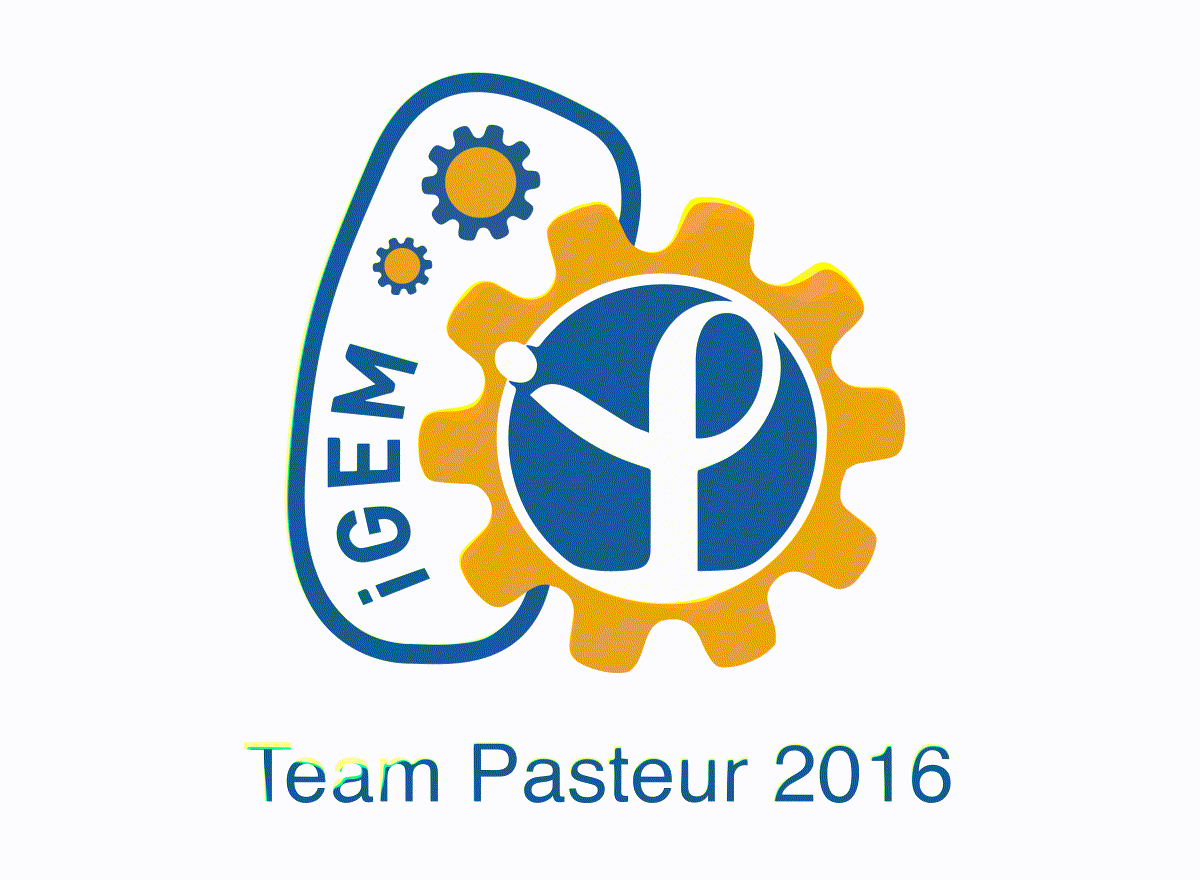| Line 347: | Line 347: | ||
<li><a href=" https://2016.igem.org/Team:Pasteur_Paris/Project "><center><img src="https://static.igem.org/mediawiki/2016/a/a5/Science.png" height="45px" width="45px"></center><b></b><FONT size ="3.5pt" color=#8B8378><br>Project</br></FONT></a > | <li><a href=" https://2016.igem.org/Team:Pasteur_Paris/Project "><center><img src="https://static.igem.org/mediawiki/2016/a/a5/Science.png" height="45px" width="45px"></center><b></b><FONT size ="3.5pt" color=#8B8378><br>Project</br></FONT></a > | ||
<ul> | <ul> | ||
| + | <li><a href="https://2016.igem.org/Team:Pasteur_Paris/Project">Context</a></li> | ||
<li><a href="https://2016.igem.org/Team:Pasteur_Paris/Project">Overview</a></li> | <li><a href="https://2016.igem.org/Team:Pasteur_Paris/Project">Overview</a></li> | ||
| − | + | ||
| − | + | ||
| − | + | ||
| − | + | ||
| − | + | ||
</ul> | </ul> | ||
</li> | </li> | ||
| − | + | ||
| + | <li><a href=" https://2016.igem.org/Team:Pasteur_Paris/Design "><center><img src="https://static.igem.org/mediawiki/2016/e/e4/DESIGN_PART.png" height="60px" width="50px" alt=""></center><b></b><FONT size ="3.5pt" color=#8B8378><br>Design </br></FONT></a> | ||
<ul> | <ul> | ||
| − | <li><a href="https://2016.igem.org/Team:Pasteur_Paris/ | + | <li><a href="https://2016.igem.org/Team:Pasteur_Paris/Trapping ">Trapping</a></li> |
| − | <li><a href="https://2016.igem.org/Team:Pasteur_Paris/ | + | <li><a href="https://2016.igem.org/Team:Pasteur_Paris/Patch ">Patch</a></li> |
</ul> | </ul> | ||
</li> | </li> | ||
| Line 376: | Line 374: | ||
<li><a href=" https://2016.igem.org/Team:Pasteur_Paris/HumanPractice "><center><img src="https://static.igem.org/mediawiki/2016/f/f5/HP.png " height="45px" width="45px"><b></b><FONT size ="3.5pt" color=#8B8378></center><br>Human Practice</br></FONT></a> | <li><a href=" https://2016.igem.org/Team:Pasteur_Paris/HumanPractice "><center><img src="https://static.igem.org/mediawiki/2016/f/f5/HP.png " height="45px" width="45px"><b></b><FONT size ="3.5pt" color=#8B8378></center><br>Human Practice</br></FONT></a> | ||
<ul> | <ul> | ||
| + | <li><a href="https://2016.igem.org/Team:Pasteur_Paris/Scenario ">Scenario</a></li> | ||
<li><a href="https://2016.igem.org/Team:Pasteur_Paris/Outreach">Outreach</a></li> | <li><a href="https://2016.igem.org/Team:Pasteur_Paris/Outreach">Outreach</a></li> | ||
<li><a href="https://2016.igem.org/Team:Pasteur_Paris/Collaborations"> Collaborations</a></li> | <li><a href="https://2016.igem.org/Team:Pasteur_Paris/Collaborations"> Collaborations</a></li> | ||
| Line 424: | Line 423: | ||
</div> | </div> | ||
| − | |||
| − | |||
<!--abstract sur le coté--> | <!--abstract sur le coté--> | ||
Revision as of 08:15, 7 September 2016
Vector-borne (re) emerging diseases are responsible for severe epidemics worldwide. In most cases, vaccines or treatments are not available, and insecticides are the primary source for vector control.
Consequently, over spraying of insecticides impacts the environment and leads to the selection of insecticide resistant mosquitoes.
Therefore, we developed a novel diagnostic device, Mos(kit)o that includes a fixed or mobile mosquito trap and a biosilica cellulose composite patch from genetically modified Escherichia coli.
The design of the patch creates a multilayered matrix coated with antibodies capable of detecting a wide panel of vector-borne pathogens and insecticide resistant proteins from captured mosquitoes.
Additionally, the patch will have 2D barcoded readouts, generating an environmental surveillance database. A precise map of vector hot spots will provide a better assessment and response to vector-borne diseases, assisting local health authorities with anticipating and preparing for an epidemic. Our tool will be user-friendly, safe, and applicable.
Our Abstract!












